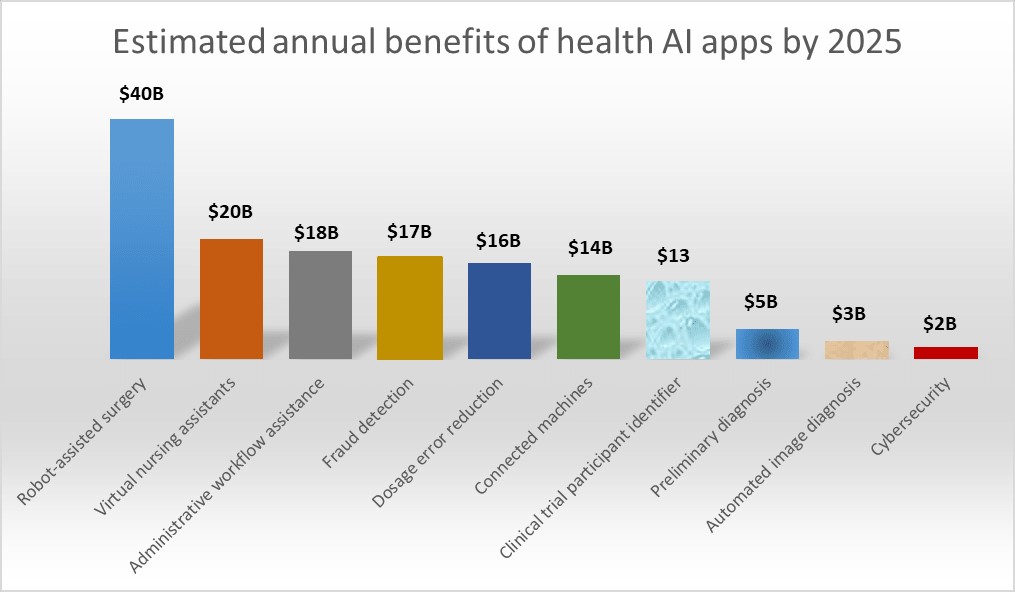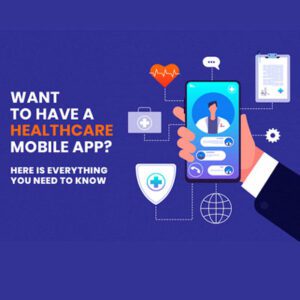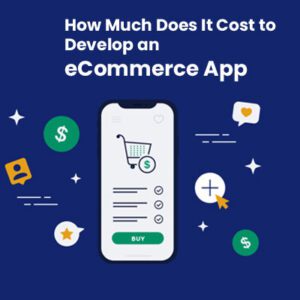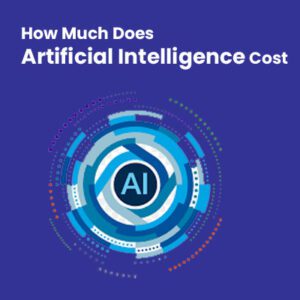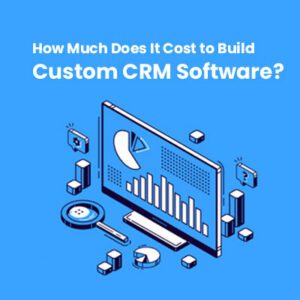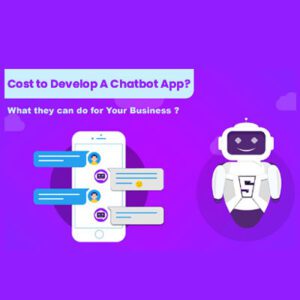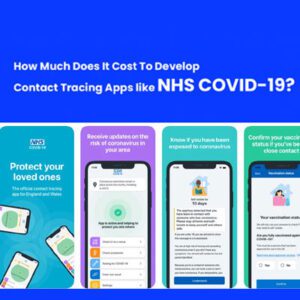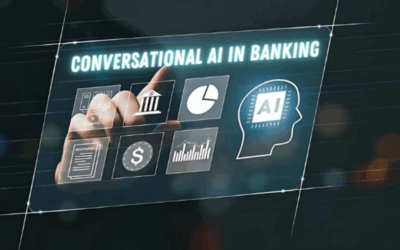The Role Of Artificial Intelligence In Healthcare Sector
The Role of Artificial Intelligence in Healthcare Sector!
The role of Artificial Intelligence (AI) in healthcare offers advanced and precise healthcare services. AI and Machine Learning (ML) technologies offer thrilling opportunities for the healthcare sector. From molecular research and development functions to clinical decisions, everything is performed precisely with AI.
The current scenario of AI in healthcare backed up by ML is smarter enough to identify tumors. Besides, artificial intelligence in healthcare also helps in diagnosing severe diseases efficiently.
In this article, we compiled a list of the best applications of AI in the healthcare sector.
The Best applications of AI in the healthcare sector
Applications of AI in healthcare are incredible. The AI technology for the healthcare sector is driving abundant benefits for care service providers. Especially with the use of predictive analytics, AI is transforming the healthcare industry rapidly.
Here are the best benefits of AI in healthcare industry
-
AI For Fast Diagnosis
The benefits of AI in healthcare sector are enormous. , the role of artificial intelligence in healthcare for optimizing disease diagnosis has a high impact on the industry.
AI software solutions, using the potentialities of Machine Learning, and Deep Learning techniques, process vast patient data faster and quickly and accurately make treatment decisions.
Further, predictive analytical features of AI healthcare apps can seamlessly predict diseases faster and help physicians deliver the best care services on time to the patients. Thus, artificial intelligence in healthcare supports practitioners to make quick conclusions and provide the right treatment at the right time.
USM is one of the top AI development companies in the USA. We develop intelligent AI apps for healthcare organizations. Our team of AI experts, with vast proven knowledge of trending concepts of AI, builds fully advanced disease detection software solutions that save lots of time and increase patients care level.
Further, intelligent AI-powered healthcare applications will derive insights into the patient’s health data and offer personalized treatment recommendations to the patients.
AI machines can process vast historic patient data faster for ensuring quick and accurate treatment decisions. AI can predict disease faster than a physician. Thus, artificial intelligence in healthcare supports practitioners for quicker data access for providing the right treatment at the right time.
USM has an innovative AI mobility solution for healthcare service providers. Our care planning AI solution physicians can send treatment recommendations to patients. This solution might be useful for enhancing treatment levels. Get this life-saving AI solution right now!
Let us know our healthcare app requirements and get a free app quote!
-
AI for Drug Development
The drug development use case is the best answer for what is the main role of artificial intelligence in healthcare. Yes, AI in drug development is one of the best use cases of the technology. The use of AI in healthcare in pharmaceuticals plays a significant role in developing advanced drugs to treat complex diseases.
Further, driven by the capabilities of data prediction, AI algorithms in healthcare apps developed for drug discovery and development also predict the toxicity of molecules based on their chemical structure. It is one of the top benefits of using AI in drug development.
Artificial intelligence is widely deploying by pharmaceutical firms for developing new drugs to tackle novel diseases. Companies are using AI for drug research and development functions.
-
AI Automates Admin Tasks
It is one of the best applications of AI in healthcare. AI is the symbol for automation and it is evolving successfully with its intelligent automation capabilities. Automating front-desk operations is one of the major roles of using AI in the healthcare sector.
By automating health insurance services, back-office tasks, patient data management, discharge summary generation, and many more data accessing, storing, and processing activities, AI healthcare solutions are assisting healthcare service providers in terms of streamlined operational processes and enhanced productivity.
Insurance companies are highly investing in AI apps for streamlining internal claiming processes, validating automatically, and disbursing amounts to the insurer on time. Moreover, AI-powered automation applications have the potential to process hundreds of claims simultaneously and accurately validate every word for checking the credit eligibility of each client.
This application is widely used for automating health insurance services. The insurance companies in the healthcare industry are relying on AI for boosting their internal processes. Artificial intelligent systems help them in processing claims automatically with human interference.
AI-powered automation systems analyse hundreds of claims and accurately checks for the credit eligibility of each client.
-
AI Robots For Minimal Invasive Surgeries
Artificial Intelligence and its role in Healthcare has already reached the next level and robotic surgeries are the best examples for this scenario. The robotic surgery includes minimum cuts and slits. Besides, compared to physicians, robots perform surgery with less pain and little incision line. Hence, AI-powered robotic surgeries in healthcare are stress-free and time-saving.
The robotic surgery includes minimum cuts and slits. Besides, compared to physicians, robots perform surgery with less pain and little incision line. Accordingly, telemedicine is also gaining popularity nowadays. Remote surgery using robots and telemedicine with assistants are giving tremendous benefits to care service providers.
Thus, the future of surgery using AI in healthcare is stress-free. Thanks to such advanced AI technology for the healthcare industry.
-
AI for post-discharge services
Few advanced AI apps for healthcare allows doctors to help patients post-discharge. Patients can get detailed data of medication, follow-ups, and physician contact details.
USM has a similar AI app for healthcare service providers. Get your artificial intelligence solution now.
Recommended: AI In Healthcare: The Future of Healthcare Sector Will be Around “AI”
-
Monitoring Post-discharge Patients
Advanced AI apps for healthcare allow doctors to monitor post-discharge patients. Using AI-based electronic health records management system, healthcare service providers can access patient’s health data, monitor detailed medication, schedule follow-ups, and book online appointments with physicians in an emergency.
-
AI Personal Nursing Assistants
It is one of the best applications of AI in healthcare or AI in medicine. As of research, over 50% of patients are comfortable and safe being with virtual nursing assistants. The AI and ML-powered virtual nursing assistants operate with voice and checks patients on time.
8. AI for Quick Navigation
Nobody knows when a person needs emergency treatment. User-friendly AI-powered mobile apps act as a bridge between hospitals and clients. The best example of AI in healthcare for this application is USM’s AI healthcare app.
This next-gen. AI app for healthcare benefits patients to find the nearest healthcare centers. Accordingly, it also gives data on room availability, fab facilities, and so on. If you are a healthcare service provider, get this AI app for healthcare for providing quick and personalized services to clients.
Other Potential Advantages Of Artificial Intelligence In Healthcare
10. Aware Of Regularity Frameworks
In the recent past, healthcare regulations in the United States are updating to keep up with the evolving digital healthcare market. The U.S. Food and Drug Administration (FDA) has been taking incremental phases to amendment the existing rules and regulations. Recently, it was introduced the “Digital Health Innovation Action Plan” to guide the agency’s role in advancing effective digital health technologies.
Besides, the FDA also focused on a digital health software Pre-Cert Pilot Program. It is enrolling software-as-a-medical-device (SaMD) developers in this project. This pilot project helps the FDA to determine the performance indicators that are needed for per-certifying the product. Using this, the FDA helps developers in identifying new ways of product approval procedures that are seamless.
Accordingly, another regularity framework, “Policy for Device Software Functions and Mobile Medical Applications” was introduced in 2019 for higher-risk software. This new policy comprises various guidance documents that label how the agency plans to regulate software that helps in clinical decision support (CDS). The CDS software identifies a patient’s medical conditions as it uses ML algorithms.
11. Achieving FDA Approval
To comply with the changing FDA approval processes, software developers must consider how to design and roll out their products under the FDA rules. Particularly, developers should focus on achieving FDA approval for the software which comes under the higher risk category.
Here, artificial intelligence-powered diagnostic tools and applications come in place. The developers should be more focus on FDA rules when they develop AI-powered healthcare tools and software. As AI is evolving across all sectors, the healthcare industry is also investing in AI to automate its medical diagnostic processes.
Software Update is a major concern that developers face today. Because, based on the market requirements, the developers will update the existing software products. They will add new features to advance the functionalities using emerging AI and ML technologies. But, when they change the technical description of the software, the FDA approval status for the old version of the software will be at risk.
Similarly, organizations must know the company’s product development plans and approach that they follow to get FDA approvals. This provides investors a clear variation of the company over its competitors in the same industry.
USM Business Systems design and deliver AI-powered compliance safety healthcare solutions and services. We develop healthcare mobility solutions using AI, ML, and other emerging technologies. Our innovative AI-powered healthcare solutions for healthcare highly focused on patient safety, secure payment methods, and real-time communication.
Let’s talk.
Are you ready to design an AI-based healthcare app? So, get your artificial intelligence solution quote for healthcare now!
Talk to our AI experts. They’ll let you know the how to develop a compliance safety healthcare applications. Let’s talk.
#3 Black-Box Nature of AI Is Hampering Its Growth In Clinical Applications
Yes, artificial intelligence is a black-box in its nature. This is one of the major drawbacks of the rapid adoption of AI-based applications in healthcare.
We’ll brief it out. Can all healthcare AI-powered applications track and assess the decision making procedure when a negative outcome happens? Will the set of trained data to the ML algorithms is visible to users? Will the reason for a negative outcome is identified by the technology itself?
The developers should focus on all the above points while designing an AI-powered software for healthcare. Because, if your software is posing more negative outcomes, then the application will be banned in the market and the efforts you put on design, development, and getting approvals will be wasted in minutes.
Accordingly, AI-systems need more data to perform the tasks that they assigned to do. But, if you feed the AI systems with wrong data, it will provide incorrect conclusions such as misdiagnosis and improper treatment recommendations. Error Detection algorithms help you out in this scenario. Thanks to technology developments.
Currently, many healthcare service providers are using artificial intelligent-based medical diagnostic devices to provide better services and optimize patient diagnosis process. For instance, FDA approved AI-powered imaging diagnostic software/tools are helping clinicians in diagnosing and treating various health conditions such as cardiovascular disorders, diabetic conditions, and cancer.
However, the adoption of these AI tools is sluggish in the market. There is a need to publish the AI’s benefits in healthcare. More awareness of artificial intelligence in healthcare to witness industry adoption and get the credibility of AI technology.
The Future Of AI In Healthcare
Implementation of AI in healthcare was at the pre-mature stage. Without significant investments, AI adoption in healthcare is slow and difficult. The market researchers are estimating that the clinical health AI applications will save $150 billion per annum for the United States economy by 2025.
Artificial intelligence in healthcare is used for multipurpose. AI can sense machines, learn, and perform both clinical and administrative tasks. Hence, health AI will augment every task done by humans intelligently and automatically. The graph below depicts the most promising healthcare applications of AI that are attracting more investments.
According to the market research reports, the market value of AI in healthcare is at nearly $12 billion in 2021 and is expected to reach approximately $ 187 billion by 2030. Implementation of AI in healthcare was at the pre-mature stage. Significant investments in AI has to be done for its complete rollout.
Driven by its incredible benefits of Artificial intelligence investments in healthcare are anticipated to increase in next coming years. The automatic and intelligent capabilities of AI will augment healthcare processes and ensure high productivity.
Recommended: AI In Healthcare: The Future of Healthcare Sector Will be Around “AI”
On the global artificial intelligence healthcare market front, the investments are stunning and are increasing every year. Both the public and private sectors are heavily investing in health AI. Every healthcare company is in plans of implementing AI strategies to become competitive in the market.
From clinical diagnosis and treatment to robotic surgery and drug development, AI plays an essential role in healthcare. The healthcare AI will completely change the structure of the existing healthcare market in the next decade.
Yes, the complete roll-out of AI will take years, but AI technology, ML, and predictive analytics together bring an advanced healthcare solution that was never before available. According to researchers, AI is widely used for automating admin and operational tasks in the near term future.
Are you ready to automate your healthcare services?
Connect with USM, a leading AI App Development Company.

